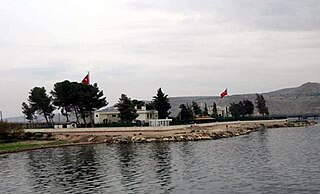 W
WThe 2015 Zabadani ceasefire agreement between Syrian opposition forces and the Syrian Armed Forces was achieved on 24 September 2015, with mediation from the United Nations, following the Battle of Zabadani (2015). The agreement was fulfilled on April 2017.
 W
WBeginning in 2014, a number of people from various countries were beheaded by Islamic State of Iraq and the Levant (ISIL), a radical Sunni Islamist group operating in Iraq and parts of Syria.
 W
WMuath Safi Yousef al-Kasasbeh was a Royal Jordanian Air Force pilot who was captured and burned to death by the militant group ISIL after his F-16 fighter aircraft crashed over Syria.
 W
WOperation Shah Euphrates was an operation by the Turkish military to relocate the tomb of Suleyman Shah in Syria conducted on 21/22 February 2015. The tomb, which was positioned inside Turkey's only foreign enclave, had been surrounded by self proclaimed Islamic State in Iraq and the Levant (ISIL) forces for over 4 months.
 W
WThe United Nations Security Council Resolution 2209 condemns any use of chemicals as a weapon in the Syrian Civil War and threatens to use force if chemical weapons are used again in the conflict. The resolution was passed with 14 in favor with one abstention from Venezuela.
 W
WThe United Nations Security Council Resolution 2235 is on establishing a Joint Investigative Mechanism to identify individuals, entities, groups, or governments responsible for use of chemical weapons in the Syrian civil war.
 W
WThe United Nations Security Council Resolution 2254 was unanimously adopted on 18 December 2015. It calls for a ceasefire and political settlement in Syria.
 W
WThe Vienna peace talks for Syria, as of 14 November 2015 known as the talks of the International Syria Support Group (ISSG), are negotiations of foreign powers that began in Vienna, Austria in October 2015 at the level of foreign ministers, to resolve the conflict in Syria, after unsuccessful previous Syrian peace initiatives.